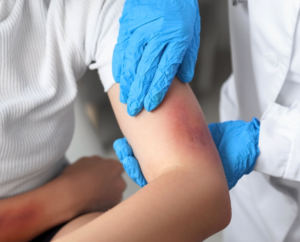Aug 2022
The Impact of Specialized Prosecution on the Safety of Domestic Violence Victims
The Crime Lab’s Ashna Arora presents “The Impact of Specialized Prosecution on the Safety of Domestic Violence Victims” as a part of the Niskanen Center’s webinar series on responsible prosecution.

Agent-Based Model of Combined Community- and Jail-Based Take-Home Naloxone Distribution
This paper outlines the impact and cost-effectiveness of naloxone distribution, particularly for people facing criminal justice involvement.

Empirical Analysis of Prediction Mistakes in New York City Pretrial Data

Policing Substance Use: Chicago’s Treatment Program for Narcotics Arrests – Working Paper
This working paper sheds light on the effectiveness of diversion programs by showcasing Chicago’s drug diversion program success in reducing drug-related arrests.

Brookings Institution Commentary: Making the invisible epidemic visible
Using new data from a large urban trauma center in Chicago, we document substantial under-reporting of domestic violence at the time of receiving medical care.
Latest Updates
Curbing gun violence in Chicago doesn’t require that we first end poverty
Crime Lab leaders Katie Hill and Jens Ludwig penned an op-ed in the Chicago Tribune highlighting the root causes of gun violence and the growing body of research showing that increased neighborhood vibrancy generates surprisingly large changes in the prevalence of gun violence, by as much as 30%.

A fighting chance
In The University of Chicago Magazine’s Fall ’25 issue, Susie Allen profiles Crime Lab Pritzker Director Jens Ludwig to discuss his book, “Unforgiving Places,” which challenges conventional wisdom on gun violence and suggests new approaches to solving the problem.

Researchers: Violence intervention and policing should complement, not compete against, each other
The Crime Lab’s Executive Director Katie Hill and Pritzker Director Jens Ludwig discuss evidence-based solutions to crime, including violence intervention and data-driven policing, in an op-ed for the Chicago Tribune.

